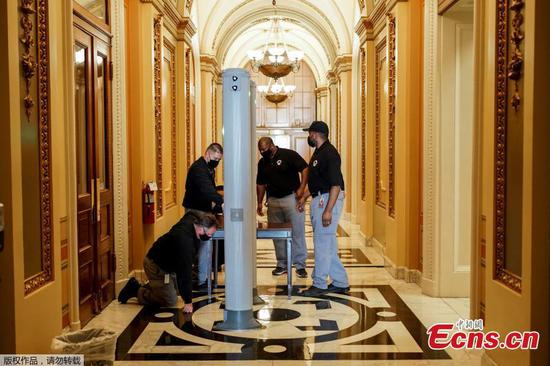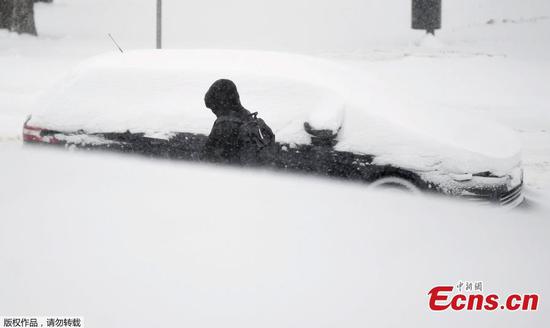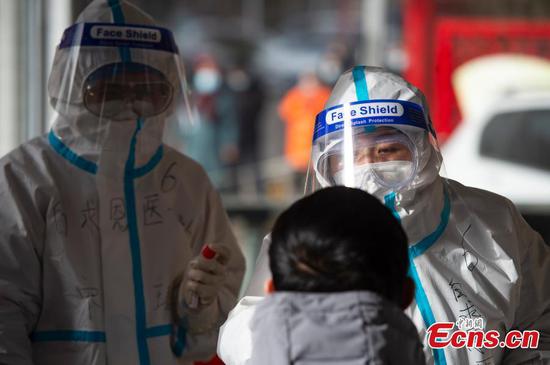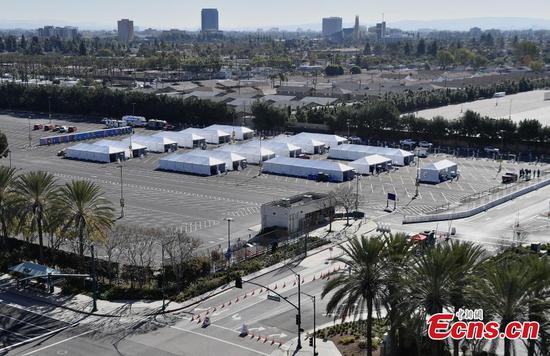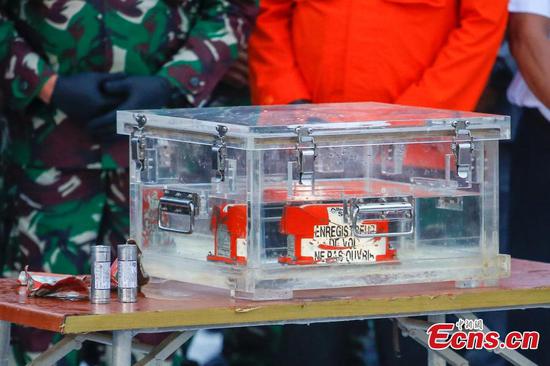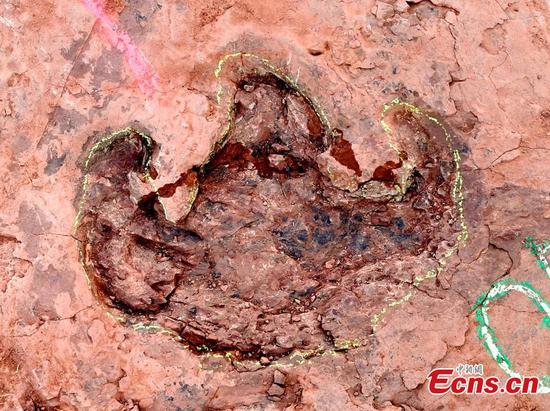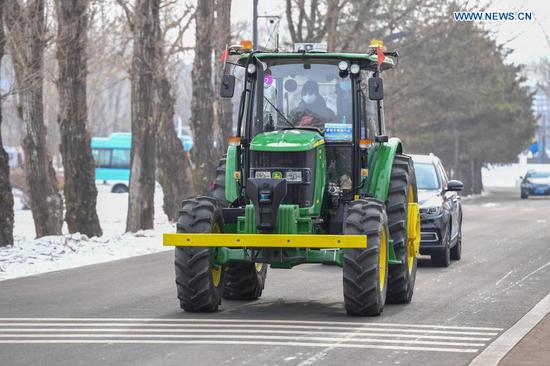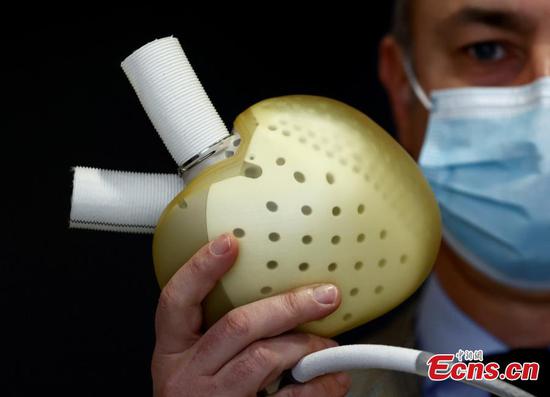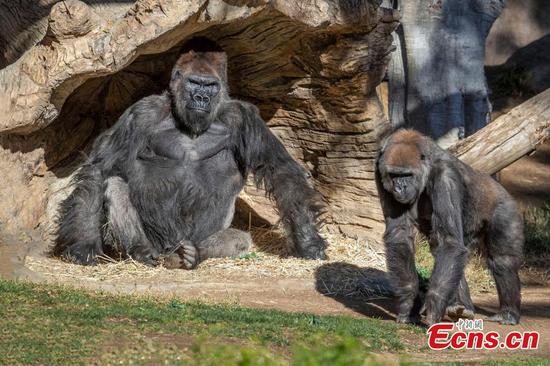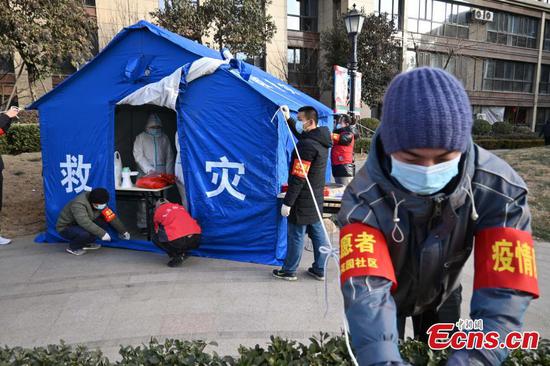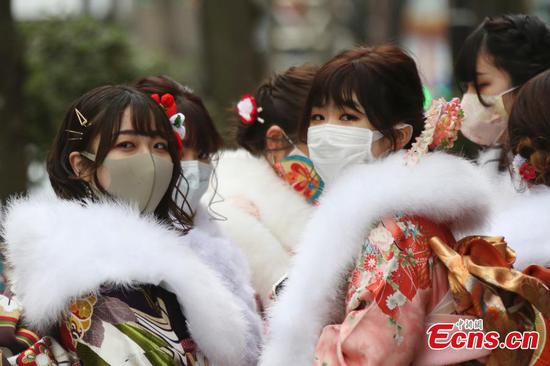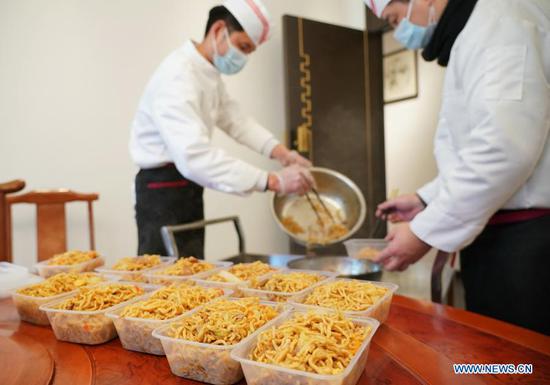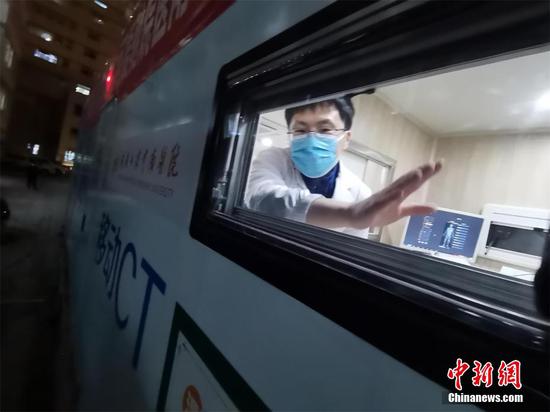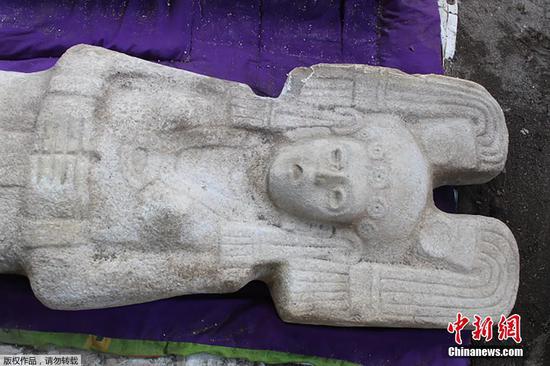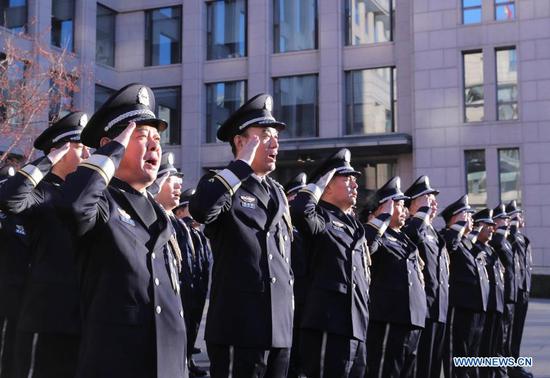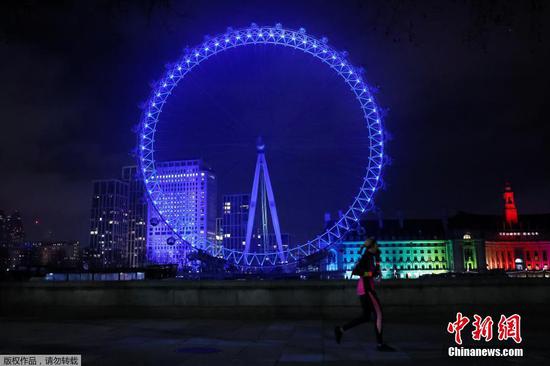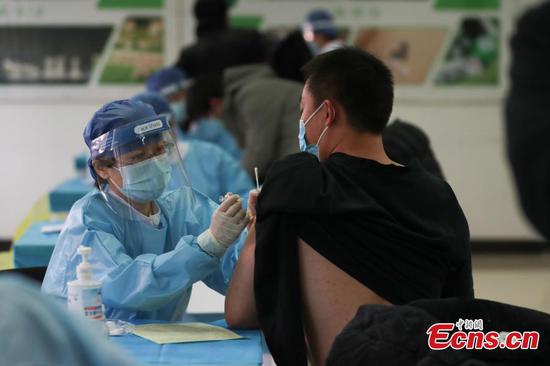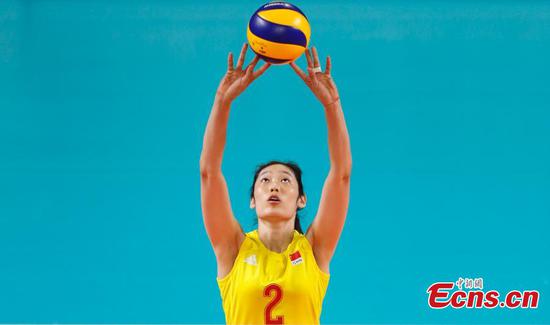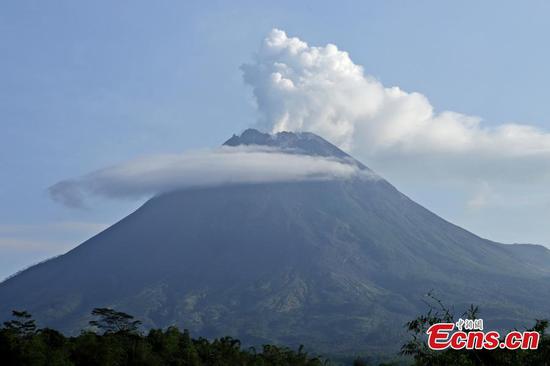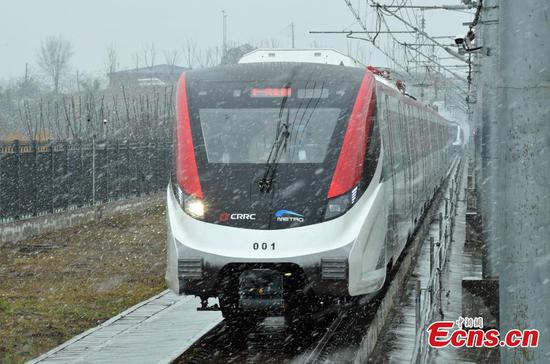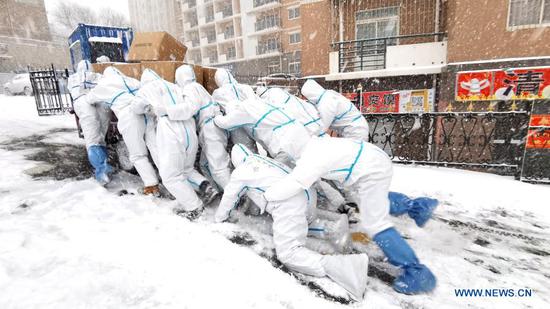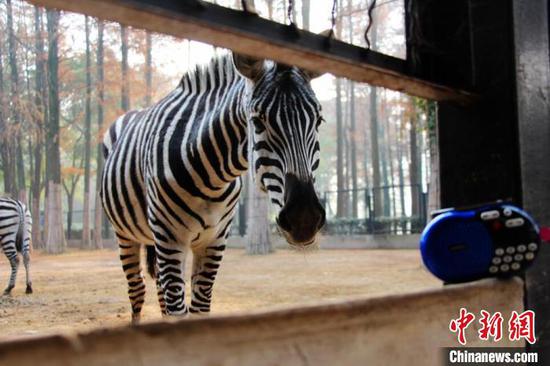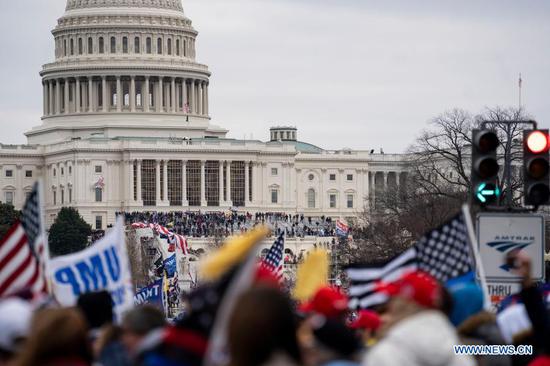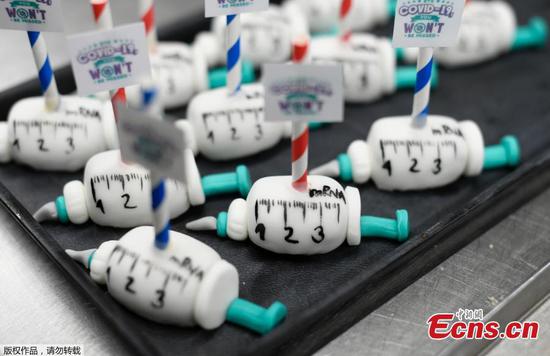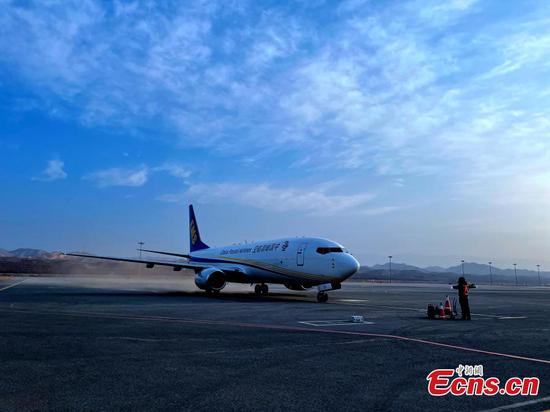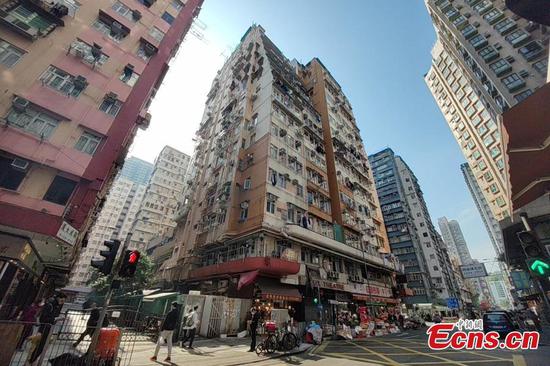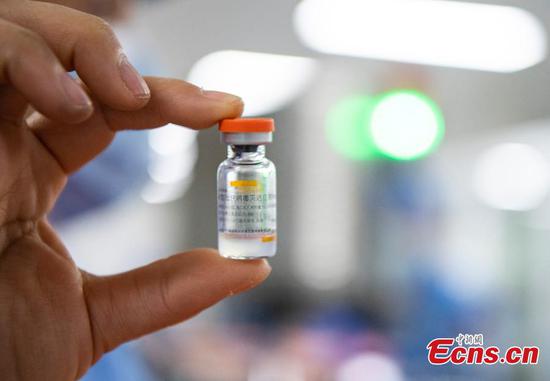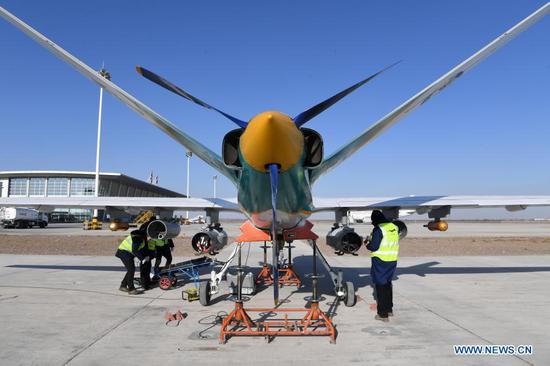Chinese and Brazilian experts cautioned against misinterpretation of the 50.4 percent efficacy rating from the Brazilian trial of CoronaVac, a COVID-19 vaccine candidate made by China's Sinovac Biotech. They said the figure only describes the protection rate under the most stringent conditions, many of which were not included in similar studies done by other vaccine developers.
Natalia Pasternak, president of Brazil's Science Question Institute, a nonprofit organization that promotes scientific literacy, said CoronaVac may not be the perfect vaccine against COVID-19, but it is a vaccine that is compatible with Brazil's local production, cold chain logistics and distribution networks.
"We have a vaccine that is perfectly capable of preventing disease and death," she said, adding that the CoronaVac's relatively low efficacy rate under difficult conditions should not be used to justify not using this vaccine.
On Tuesday, officials and researchers from the Sao Paulo-based Butantan Institute, which is responsible for running the phase 3 clinical trial for CoronaVac in Brazil, announced they had submitted new data on the trial's progress to the national health regulator for emergency use approval.
Studies showed the vaccine was 100 percent effective in preventing severe cases, and had a 78 percent efficacy rate in preventing mild to severe cases of COVID-19 as well as an excellent safety profile. It also has logistical advantages as it can be stored in a standard refrigerator at 2 to 8 C.
However, when all testing volunteers were considered, including those with "very mild" cases of COVID-19 that required no medical assistance, the total efficacy rate drops to 50.4 percent.
Many media outlets have taken this figure out of context and have criticized the Chinese vaccine, but experts stressed that this number alone is not a realistic depiction of the vaccine's potency in a normal population, nor is it a justification not to use the vaccine, which has been proved to be safe, easy to store and transport, and is effective in preventing severe cases.
However, experts also said it is difficult to evaluate the true efficacy of vaccine candidates based on limited information from news releases, rather than detailed studies published in peer-reviewed journals.
Yin Weidong, founder and chairman of the Sinovac board, said in a news briefing on Wednesday that based on available data, CoronaVac's trial in Turkey showed the vaccine had an efficacy rate of 91.2 percent against COVID-19, while the one in Indonesia had a protection rate of 65 percent.
A spokesman for Sinovac who requested anonymity told China Daily that the discrepancy in the efficacy rate for the vaccine, which is undergoing phase 3 clinical trials in Brazil, Indonesia, Turkey and Chile, is due to the different designs of the trials and the data should not be used for comparison without proper context.
He said the company is proactively collaborating with peers from Brazil to publish the results of the trial as soon as possible, but it may take some time as the vaccine trial in Brazil is the largest and most complex of the four.
Lawrence Young, a professor of Molecular Oncology at the University of Warwick in the United Kingdom, said in regard to the Brazilian results that it is difficult to interpret the information without seeing the full data.
Demanding setting
Ricardo Palacios, medical director of clinical research at the Butantan Institute, said in a news briefing on Tuesday that the inclusion of the mild cases represented the most stringent test for the vaccine, characterized by covering the broadest number of symptoms and high exposure to COVID-19 as the recipients were front-line health workers.
"We deliberately chose the most challenging conditions, and wanted to capture even the subtlest of symptoms. These criteria have not been included in similar studies elsewhere," he said, adding that if a vaccine can succeed even in the most demanding setting, "it would prove the vaccine would work well in normal conditions."
Rosana Richtman, a consultant for the national immunization program of Brazil's Ministry of Health, said in the news briefing that the "most important number is 78 percent [the efficacy rate]", which was first released by the Butantan Institute last week.
"A 78 percent effective vaccine can reduce the workload of our medical workers and alleviate the fear caused by the novel coronavirus to our people," she said. "The best vaccine is the one that is available to our people."
Wang Guiqiang, head of Peking University First Hospital's department of infectious diseases, said that during a pandemic, the purpose of a vaccine is to reduce the number of patients and the workload of hospitals, so the medical system doesn't collapse under pressure.
"If the vaccine can prevent the majority of the public from seeking medical help and provide full protection against severe cases, it is still a significant result and well worth the effort," he said.









